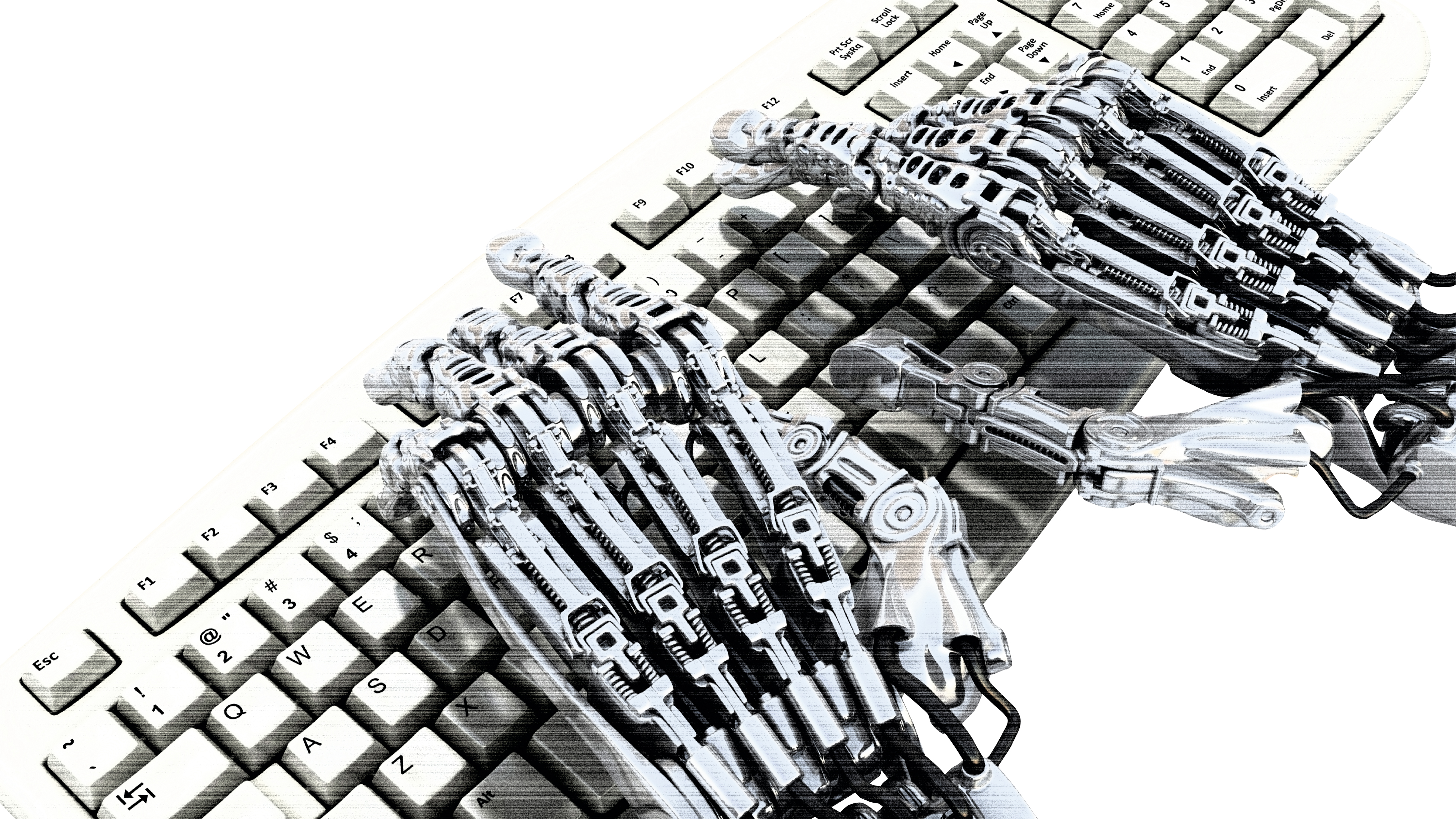Google fixing Captcha is the best tech news of the decade
Because then we can work out who the robots are and MELT THEM

Sign up for breaking news, reviews, opinion, top tech deals, and more.
You are now subscribed
Your newsletter sign-up was successful
Google's having another shot at solving one of the biggest problems of the modern age -- the tiny pain in the arse that is the Captcha human verification text check system.
You know, the one that makes you try to identify what a toddler has been scrawling on the walls with its own poo before being allowed to carry on conducting your important internet business. That thing.
The big new idea is to replace wonky letter examination skills with a simple question: are you human? The clever stuff is all done prior to that click, though, with Google suggesting a mysterious combination of mouse speed, click accuracy, computer stats and IP details are used to work out if you're a person or a data-harvesting software routine before you click.
Only then, if you fail, is there a back-up test involving clicking on photographs of cats.
The problem is, if we really are all just software people living in a simulated universe, won't we all be picked out as robots? Introducing this could bring about the realisation that everything we believe in is a lie.
Terminator Clickonthis
On Wired, the argument quickly turned into a debate about the privacy implications of the new Captcha system, with reader Symplectic pointing out there's a lot more at stake than just knowing if we're made of meat or silicon, saying: "Google is using your browsing history and your mouse pattern to identify you as human. It's not the fact you're human that privacy-conscious users won't like being reminded of -- it's the fact that Google knows what websites you browse and which images you hovered over without clicking."
Commenter Velocipedes thinks there's not much more Google needs to know about us, quipping: "If you're using any of Google's services, you're voluntarily providing that information."
Sign up for breaking news, reviews, opinion, top tech deals, and more.
Grover Nilkvist thinks the effort should be being made by the robots anyway, asking: "Why are WE always the ones to have to make the effort? Why can't THEY just click the 'I'm a robot' checkbox? Anyone who thinks we're going to get the same preferential treatment when they're in charge is just delusional. Wake up people."
Click farmers
Readers on The Verge turned their attention to the cat photos, questioning how the vagueness of the images could be used by Google to fine-tune its own photo recognition and categorisation tools.
Commenter Outerwave claims the cat-matching game is deliberately vague, posting: "The message being somewhat ambiguous is part of the system. These captchas also improve Google's search. What is considered 'similar' to the original picture is probably different from person to person. But after 100 people take the test, Google (or whoever) would have an improved idea of what 'similar' meant to most people by comparing what was selected most of the time."
Which made some clipart of a lightbulb appear over the head of reader Miku, who replied: "Ah! This is not really about making Captcha better, this is about harvesting Captcha to improve their image search results. That makes sense."
So Google's not interested in reworking the Captcha system, it's simply come up with a front for a method of harvesting our spare seconds to process its photos. Google's turned the whole world into an enormous complimentary data processing farm.
Bot matrix
The Register reader Irongut has already had his feelings hurt by rogue AI, claiming to be a constant failure at existing Captcha technology, and therefore life. He posts: "I usually find I have to ask for a different image at least 3 times because I can't make sense of the first few. Even when I get an image I think I can read I'm usually wrong. Generally a CAPATCHA will take me about 5 minutes to get an answer the site will accept, assuming I can be arsed to keep trying."